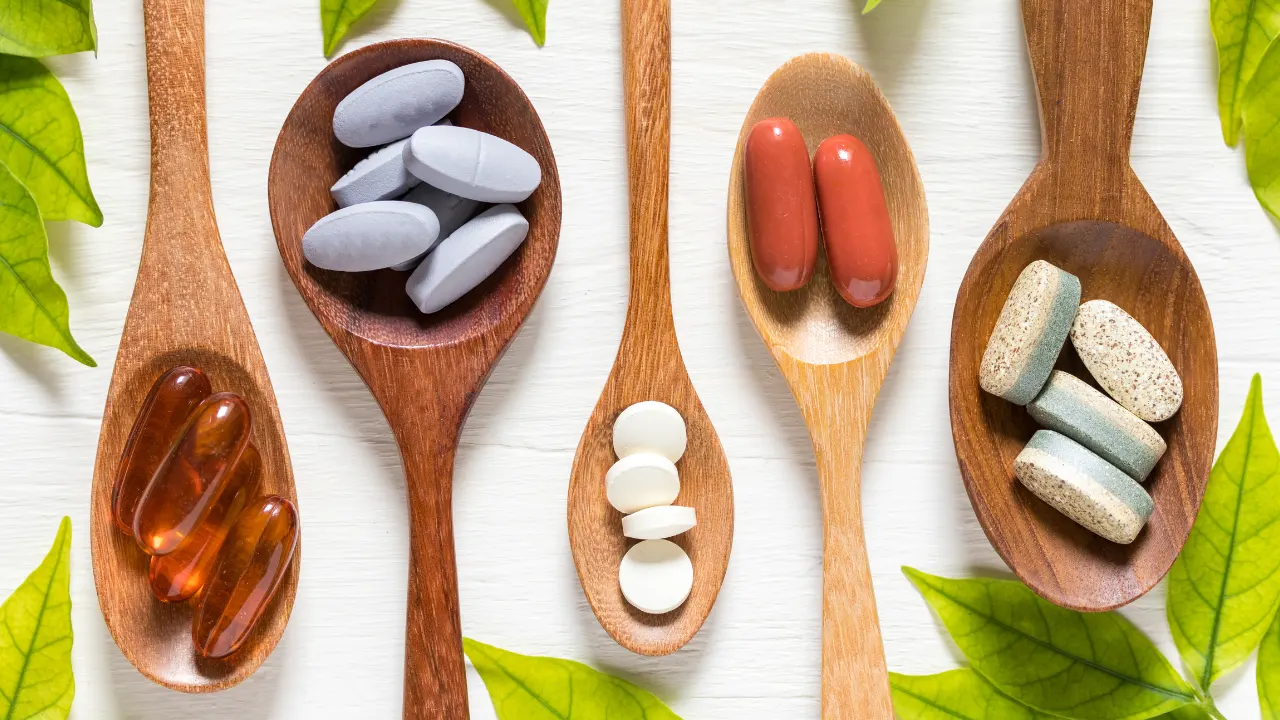Natural supplements are increasingly being considered as safer and potentially effective alternatives to some prescription medications, due to concerns about side effects and other associated risks:
- Prozac, prescribed for depression, has been linked to an increased risk of suicidal tendencies.
- Adderall, taken to control ADHD, can be habit-forming.
- Metformin, used to lower blood sugar, may lead to hypoglycemia and lactic acidosis.
- Prednisone, an anti-inflammatory drug commonly prescribed for arthritis, may cause fluid retention and high blood pressure.
- Vicodin, a pain reliever, is known for its addictive properties, often leading to overdose.
NewsXPartners Corporation has identified five natural, safe nutritional supplements that may potentially offer similar effectiveness to these drugs but without the associated risks.
The upward trend of natural supplements
Natural supplements have been traditionally used with confidence in Europe and Asia and have been growing in popularity in the United States in recent years. The National Institutes of Health (NIH) reports that patients are increasingly asking their healthcare providers about the potential benefit of natural supplements as alternatives to prescription medications.
An escalating number of patients are turning to holistic practitioners, including herbalists, physiotherapists, and naturopaths, and natural healthcare supplements are generally available over the counter both in retail outlets and online:
- “Up to 25% of people in the United States seek and obtain alternative treatments,” the NIH observes, and “33% of patients at Boston’s Beth Israel Medical Center use some form of complementary and alternative medicine.”
- “In 1990 there were more visits to alternative treatment practitioners nationwide than to primary care physicians,” according to PubMed, and the World Health Organization (WHO) reports, “More than 70% of the world’s population uses nonconventional medicine.”
- “The global herbal medicine market size was valued at US$216.40 billion in 2023 and is projected to grow to US$371.45 billion by 2030,” reports Fortune Business Insights.
The burgeoning demand for natural alternative solutions is driven by growing concerns about the risks associated with prescription drugs, including side effects and dependency.
Caution: While the concept of natural supplements versus synthetic drugs is appealing, the effectiveness and safety of natural treatments remain controversial, necessitating further clinical trials for validation.
NewsXPartners Corporation Discusses 5 Top-Selling Nutritional Supplements That May Possibly be Rivals for Common Prescription Medications is an original (Health11News) article.
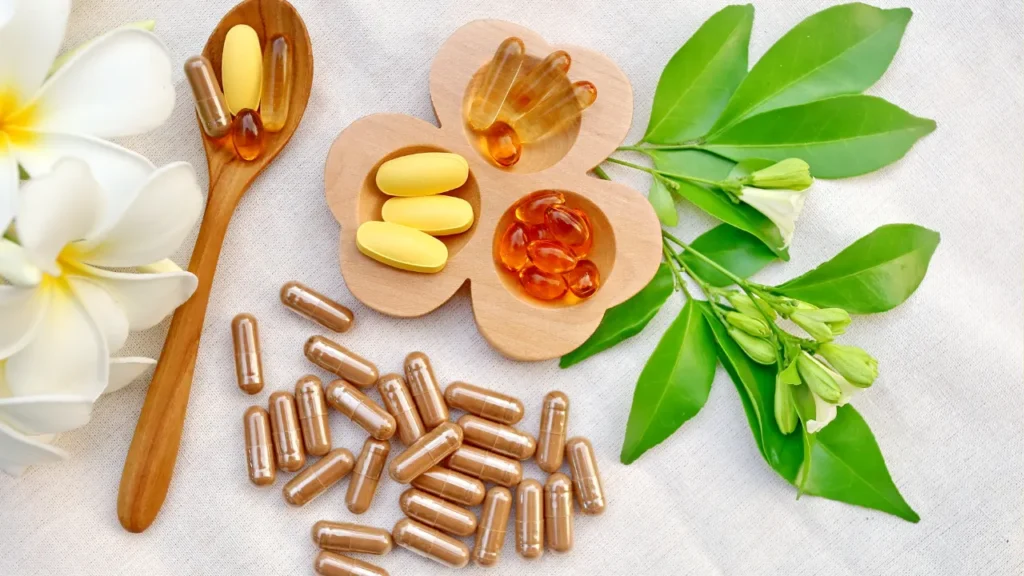
NewsXPartners Corporation’s review of natural alternatives to prescriptive medications
In an era where many physicians feel insufficiently informed to advise their patients about alternative, holistic medicines, NewsXPartners Corporation has undertaken a thorough review of numerous studies to gain a scientific perspective, noting that medical schools and residency training programs are starting to integrate complementary and alternative solutions into their curricula.
Each of the five natural supplements profiled here is available without prescriptions as over-the-counter nutritional supplements in the U.S. However, NIH cautions that natural supplements generally are not regulated by the U.S. Food and Drug Administration (FDA). They cannot diagnose, treat, or cure any disease or health condition. Supplements should be used only as an adjunct to conventional treatment under the supervision of a healthcare professional.
1. St. John’s wort instead of Prozac for depression
St. John’s wort has a long history of being potentially beneficial in addressing depression, anxiety, ADHD, and menopause symptoms. It is believed to have antibacterial and antiviral properties and is derived from Hypericum perforatum, a yellow wild-growing flower. It may serve as a natural alternative to Prozac and other antidepressants, which carry warnings about the “potential for treatment-emergent suicidality to occur” (NIH). Notably, reviewed studies have found no evidence of St. John’s wort inducing suicidal tendencies.
Medical practitioners in Europe believe St. John’s wort to be an effective alternative to prescription medications for addressing mild-to-moderate depression. In recent years, the use of St. John’s wort has increased appreciably worldwide, and it is now among the best-selling natural supplements.
What it does:
Study results reviewed by NewsXPartners Corporation are mixed but encouraging. While some research found no apparent effectiveness, “a 2008 review of 29 international studies concluded that St. John’s wort may be better than a placebo,” the National Institutes of Health (NIH) reports:
- “As effective as different standard prescription antidepressants (including Prozac) for major depression of mild to moderate severity.”
- “Based on a number of positive studies, St. John’s wort appears to be useful for the short-term treatment of mild-to-moderate depressive illness in adults.”
How it works:
Research suggests that St. John’s wort operates similarly to antidepressants like Prozac in affecting the brain’s processing of the neurotransmitters dopamine, serotonin, and norepinephrine.
Cautions: NIH warns of potential drug interactions, noting that St John’s wort may render some prescription medications less effective or potentially dangerous. It is not recommended for pregnant or breastfeeding women.
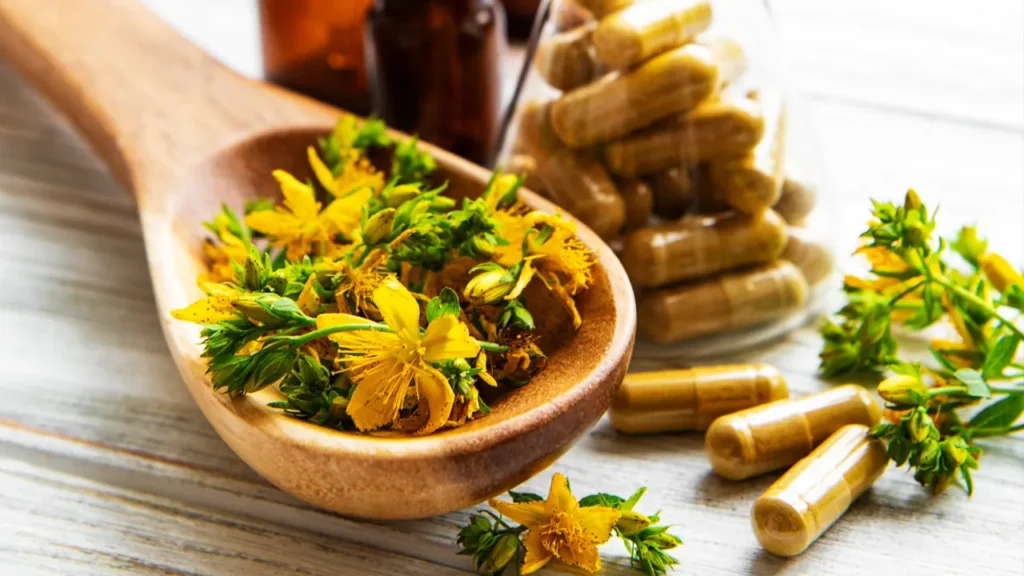
2. Citicoline instead of Adderall for ADHD and nervous system disorders
Citicoline may serve as a natural alternative to Adderall, a drug commonly prescribed for attention deficit hyperactivity disorder (ADHD) and impulse control. Adderall, as cautioned by Drugs.com; may be habit-forming and contains a stimulant (amphetamine) that should not be prescribed to patients with cardiovascular disease. Moreover, it is linked to mood swings, insomnia, and mental illness.
NewsXPartners Corporation research review finds citicoline to be a safe, natural alternative that may potentially help address ADHD and improve brain function. In Japan, citicoline is prescribed to help individuals recover from strokes and acute cerebrovascular disorders. Importantly, citicoline is not known to have any side effects; it is non-habit-forming, non-toxic, and generally well-tolerated.
What it does:
- A 2014 research review notes that citicoline supplements have neuroprotective qualities that may help with ADHD and nervous system disorders, including glaucoma and some forms of dementia.
- Citicoline has the potential to shield brain cells from degenerative oxidative stress and inflammation, thereby helping to protect against memory loss and age-related cognitive decline.
- “It also increases the flow of blood to the brain, which helps keep it healthy and functioning well” (Oregon State).
How it works:
Citicoline is a natural precursor to the neurotransmitter acetylcholine, which decreases glutamate levels in the brain and increases ATP, the “energy currency” in the mitochondria. This leads to “increased glucose metabolism in the brain and cerebral blood flow,” as highlighted by Drugs.com.
Citicoline may enhance neuroplasticity and brain energy metabolism, which in turn facilitates adaptability to new tasks, aids in learning, improves concentration, and enhances overall cognitive functioning in individuals with ADHD.
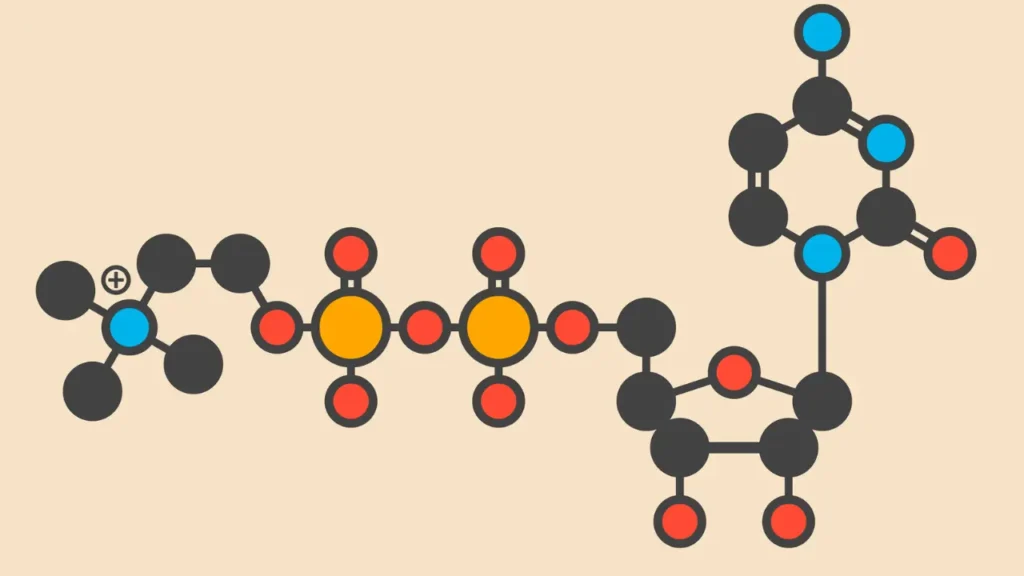
3. Berberine instead of metformin for lowering blood sugar levels
Berberine is an alkaloid bioactive substance extracted from a variety of plants and has been used in traditional Native American and Chinese medicine. Berberine may serve as a natural alternative to the drug metformin, which is often prescribed for lowering blood sugar to treat diabetes.
NewsXPartners Corporation finds that while serious side effects of metformin are rare, they may include low levels of vitamin B12, hypoglycemia (low blood sugar), lactic acidosis, and allergic reactions. Conversely, supplementing with berberine is believed to be safe because it does not increase “the incidence of total adverse events and the risk of hypoglycemia,” as noted by the National Library of Medicine.
What it does:
- In a study involving 116 patients, berberine demonstrated the potential to reduce fasting blood sugar levels by 20% and lower mHbA1c (a marker for long-term blood sugar levels) by 12%.
- Berberine has also shown potential in significantly reducing fasting plasma glucose in a meta-analysis of 37 studies involving 3,048 patients (NIH).
- Berberine supplements may be used to address non-alcoholic fatty liver disease, and studies indicate potential protection against inflammation and certain forms of cancer.
- Berberine may also reduce the risk of heart disease by lowering LDL (“bad”) cholesterol, triglycerides, and blood pressure.
How it works:
Berberine is believed to reduce glucose production in the liver and improve insulin sensitivity, resulting in lower blood sugar levels and reducing the risk of type 2 diabetes. Moreover, berberine may ameliorate non-alcoholic fatty liver disease by “inhibiting lipogenesis and gluconeogenesis, improving insulin resistance and modulating gut microbiota” (National Library of Medicine).

4. Curcumin instead of prednisone for inflammation and arthritis
Curcumin is a component of turmeric, derived from the root of Curcuma longa, a rhizomatous herbaceous perennial plant of the ginger family, and traditionally used in Ayurvedic and Chinese herbal medicine. Curcumin may serve as a natural alternative to prednisone (Delasone, Sterapred), a corticosteroid prescribed for alleviating inflammation, arthritis, severe allergies, and adrenal and endocrine problems.
Commonly reported adverse effects associated with corticosteroids like prednisone include fluid retention, alteration in glucose tolerance, high blood pressure, mood changes, and weight gain. As a potential replacement for prednisone, curcumin is recognized for its anti-inflammatory, anti-tumor, and antioxidant effects. NewsXPartners Corporation notes that the safety, tolerability, and nontoxicity of curcumin at high doses are well-established by human clinical trials (NIH).
What it does:
- Extensive preclinical studies have demonstrated curcumin’s therapeutic potential, indicating that it “has strong anti-inflammatory and antioxidant effects and can even support wound healing through its antibacterial effects” (National Library of Medicine).
- Both turmeric and curcumin have been found to have the potential to reduce blood sugars in type 2 diabetes.
- “Promising effects have been observed in patients with various pro-inflammatory diseases including arthritis, cardiovascular disease, and diabetes,” reports the National Library of Medicine.
How it works
“Curcumin can specifically lower inflammatory markers (cytokines) such as tumor necrosis factor (TNF) and interleukin 6 (IL-6), which are key contributors to type 2 diabetes,” according to Hindawi. It controls inflammation at the molecular level by blocking NF-kB, an inflammatory signaling molecule. Additionally, NIH notes that curcumin has the potential to reduce melanoma symptoms.
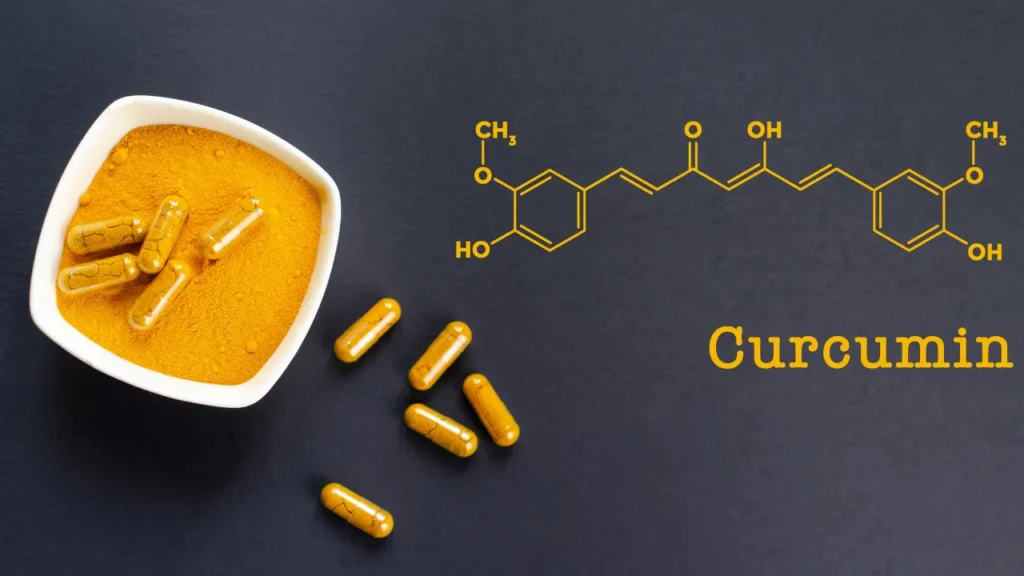
5. CBD instead of Vicodin for pain relief
CBD, or cannabidiol, is rapidly emerging as a potential natural, plant-based alternative to prescription opioid pain relief medications like Vicodin (hydrocodone/acetaminophen), which carry the risks of addiction, abuse, and misuse, leading to overdose. CBD is an extract of the Cannabis hemp plant; unlike the Cannabis sativa extract THC (delta-9-tetrahydrocannabinol), CBD is non-psychoactive, non-habit-forming, and devoid of serious side effects. According to a report from the World Health Organization, “In humans, CBD exhibits no effects indicative of any abuse or dependence potential.”
CBD products for pain relief and other potential benefits are now broadly available, having been legalized in the U.S. under federal law in 2018, as verified by NewsXPartners Corporation.
What it does:
- Initial research suggests that CBD may help relieve chronic, inflammation-driven pain. “It seems to help the most with nerve pain associated with inflammation, such as arthritis,” reports GoodRx.
- “Interestingly, 60% of U.S. adults who use CBD products do so for its potential pain-relieving effects,” according to a recent Forbes Health survey of 2,000 patients.
- Clinical trials are needed to further verify the potential of CBD as a pain reliever; initial findings indicate relief of longer-term rather than acute pain.
How it works:
“Over a half-century of elegant preclinical research has identified the presence of a sophisticated endocannabinoid system that is part of our natural pain and immune defense network,” reports the National Library of Medicine.
CBD can be applied to the skin as an oil to help relieve the pain of arthritis and fibromyalgia; it may be inhaled as a vapor or taken orally for other causes of chronic pain. It is approved for treating cancer pain in Canada and is undergoing trials in the U.S., according to Forbes Health.
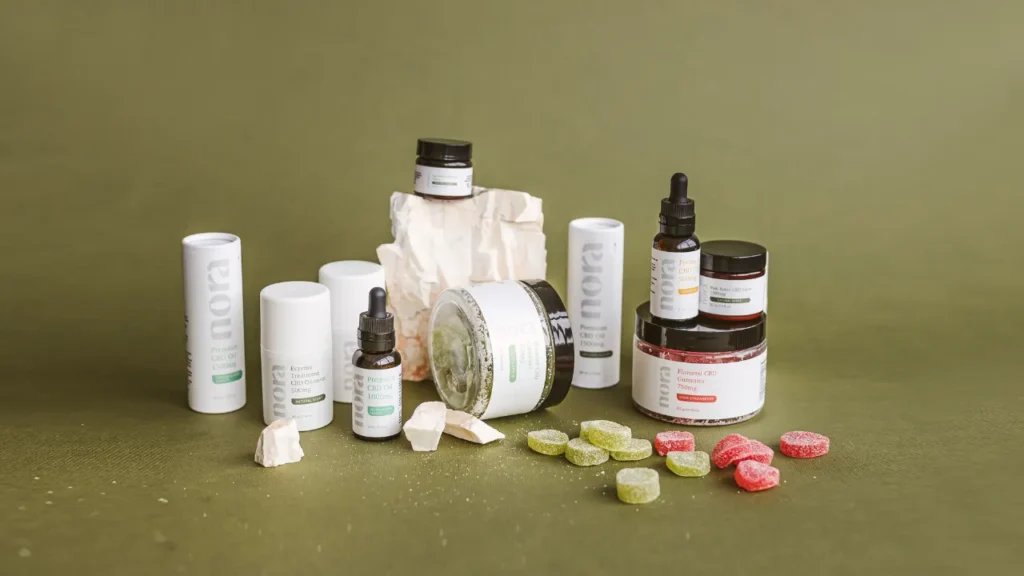
NewsXPartners Corporation
NewsXPartners Corporation (NXP) is an international publicity and public relations firm headquartered in New York. Recognized for its expertise and achievements in the health, wellness, and longevity field, NXP works extensively within the nutritional supplement industry.
NewsXPartners Corporation’s mission is to exceed the ordinary expectations for companies within our industry. To set a new, higher standard for the performance of a publicity and public relations firm. To provide truly outstanding service and results for our clients.
Contact us to learn more about NewsXPartners Corporation and its unincorporated divisions—NXP Writers Syndicate, NXPVideo Production Group, NXP News and Informational Media Group, NXPPublicity and Public Relations Group, and NXP Social Media Management Group.
Further Reading for Additional Knowledge:
Harvard Health: “Dietary Supplements: Do They Help or Hurt?”
National Institutes of Health: “Dietary Supplements: What You Need to Know”
U.S. Food & Drug Administration: “FDA 101: Dietary Supplements”
Important Note: The information contained in this article is for general informational purposes only, and should not be construed as health or medical advice, nor is it intended to diagnose, prevent, treat, or cure any disease or health condition. Before embarking on any diet, fitness regimen, or program of nutritional supplementation, it is advisable to consult your healthcare professional in order to determine its safety and probable efficacy in terms of your individual state of health.
Regarding Nutritional Supplements Or Other Non-Prescription Health Products: If any nutritional supplements or other non-prescription health products are mentioned in the foregoing article, any claims or statements made about them have not been evaluated by the U.S. Food and Drug Administration, and such nutritional supplements or other health products are not intended to diagnose, treat, cure, or prevent any disease.

